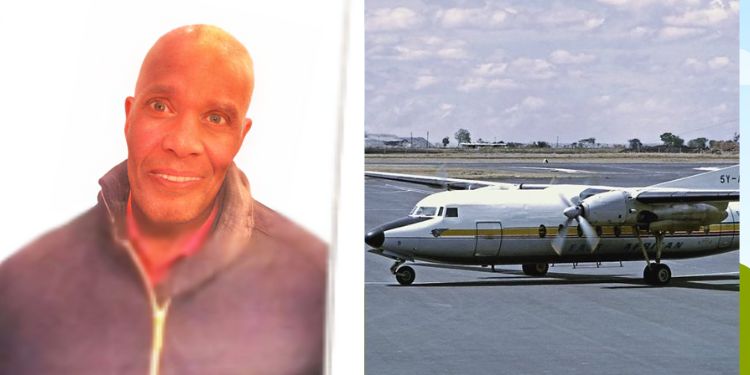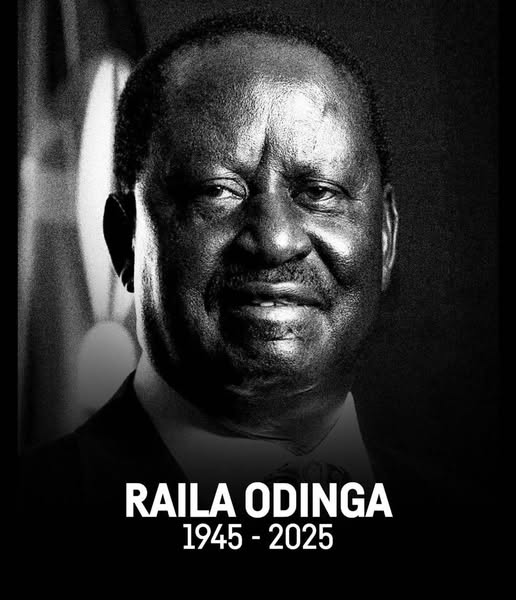Culture, Society & Insights
Beenie Gunter: Uganda’s Dancehall Trailblazer
Recognized for his versatility, Beenie explores a variety of themes in his music, ranging from upbeat club anthems to socially conscious tracks. His songs blend infectious rhythms with reflections on life’s challenges, allowing him to resonate deeply with fans on multiple levels.

Ugandan star Beenie Gunter blends dancehall, Afrobeat, and controversy into a career of resilience, redefining East Africa’s music and performance culture.
Beenie Gunter: Uganda’s Dancehall Star Redefining East African Music
Beenie Gunter, born Crescent Baguma, has become a commanding force in the Ugandan music industry, thanks to his signature fusion of dancehall, Afrobeat, and reggae. Rising to fame in the early 2010s with hits like No Offence and Pon Mi, Beenie quickly gained traction across East Africa.
Cross-Border Collaborations and Regional Fame
Beenie’s collaborations with top regional talents—Skales from Nigeria, Wyre from Kenya, and Stonebwoy from Ghana—cemented his status as one of East Africa’s standout performers.
His breakthrough moment came in 2018 with the hit single Olina Work, a fiery dancehall anthem featuring Skales. The track went viral, garnering airplay across the region and elevating his brand beyond Uganda.
Music with Meaning: Club Bangers and Conscious Bars
While known for crowd-moving anthems, Beenie also delivers tracks rich in social commentary. His 2021 album, Elevation, tackled themes of resilience, unity, and personal growth.
Critics and fans alike praised the album for its lyrical depth and sonic maturity, further solidifying Beenie’s ability to merge artistry with purpose.
Scandal and Scrutiny: Child Neglect Allegations
In 2020, Beenie was thrust into controversy when a Ugandan woman accused him of child neglect. The incident exploded across tabloids and triggered fierce debates about celebrity accountability.
“I’m not perfect, but I handle my responsibilities,” Beenie responded publicly. The case reflected growing public interest in Ugandan celebrity culture and the challenges of navigating fame under intense social media scrutiny.
Bold on Stage, Unapologetic in Expression
Beenie’s live shows are the stuff of legend—raw, high-energy, and occasionally polarizing. His bold performances have drawn both praise and criticism, with some fans applauding his freedom and others questioning his limits.
“Music is freedom,” he said in a 2021 interview. “If I can’t express myself on stage, then I’m not being true to my art.”
This fearless attitude has only deepened his appeal, positioning him as one of East Africa’s most daring live performers.
Detained in Dubai: A 2019 Setback Abroad
In 2019, Beenie Gunter made international headlines after being detained in Dubai over a visa issue while en route to a performance. The experience served as a wake-up call for African artists navigating international bookings.
He later shared, “Sometimes things go wrong… but it won’t stop me from reaching my fans worldwide.” The episode ignited dialogue around African artists’ global mobility.
Going Independent: The Birth of Guntalk City
Tired of financial disputes and lack of transparency, Beenie parted ways with his record label in 2022, alleging mismanagement.
“I’ve worked too hard to see my efforts wasted,” he posted emotionally. Shortly afterward, he launched his own label, Guntalk City, a move that was seen as both bold and necessary for fostering Ugandan talent.
Guntalk City aims to empower rising artists with creative control, fair contracts, and proper infrastructure—things Beenie himself lacked early on.
A Legacy of Resilience and Fire
From viral hits to tabloid scandals, international arrests to artistic reinvention, Beenie Gunter’s journey is defined by resilience and boldness.
Despite personal and professional trials, he continues to rise as a symbol of Uganda’s dynamic dancehall music evolution. With new music and a growing platform, his influence across East Africa only continues to grow.
Related Internal Links
Celebrities, Creatives & Public Figures
WPP-Scangroup Names Owusu-Nartey as CEO
After a turbulent financial year and leadership changes, WPP-Scangroup is betting on Owusu-Nartey’s experience to steady its East African operations. The Ghanaian executive is the first woman from West Africa to lead the Nairobi-listed firm.

Kenya’s WPP-Scangroup hires Akua Owusu-Nartey as Group CEO effective Nov 17 2025, replacing Patricia Ithau after weak results.
Nairobi, Oct 22 — WPP-Scangroup Plc, Kenya’s only listed marketing and communications conglomerate, has appointed Akua Brayie Owusu-Nartey as Group Chief Executive Officer and Executive Director, effective Nov. 17 2025, as the firm moves to restore growth after a series of financial setbacks and client losses.
The appointment, announced by the board on Oct. 21, comes three months after the exit of Patricia Ithauwho stepped down in July at the end of her contract. Ithau, a former Unilever and L’Oréal executive, had led the Nairobi-based group since 2022.
“Akua brings a deep understanding of the African communications landscape and strong credentials in agency leadership,” the board said in a statement posted on the Nairobi Securities Exchange website.
A Strategic Appointment
Owusu-Nartey currently serves as Chief Executive Officer of Ogilvy Africa, a key subsidiary of WPP Plc, which holds a controlling stake in Scangroup. She will retain oversight of Ogilvy’s continental operations during a transition period, according to CEO Magazine Uganda.
Her appointment follows months of leadership uncertainty after Ithau’s departure, during which Chief Operating Officer Miriam Kaggwa served as interim CEO. Kaggwa will continue to support the transition until the handover in November.
In a brief comment to The Reporter Ethiopia, a WPP regional spokesperson said the new leadership “signals renewed confidence in Kenya’s advertising market, which remains one of Africa’s most dynamic.”
Financial Strain and Market Challenges
WPP-Scangroup has been struggling to reverse a downturn that began in 2023. The company posted a KSh 507.6 million ($3.9 million) loss in 2024, compared with a profit of KSh 133.3 million ($1.0 million) the previous year, citing weak client spending and foreign-exchange losses, according to Business Daily Africa.
The loss of key accounts, including Airtel Africa, eroded earnings across its advertising and media subsidiaries. Analysts note that intensified competition from regional independents and new global entrants has further compressed margins.
“The company has to rebuild trust with clients and staff,” said Paul Mwangi, an analyst at Standard Investment Bank in Nairobi. “If the new CEO can stabilise revenues and reinvigorate creative output, Scangroup can recover its edge.”
What’s Next for WPP-Scangroup
Owusu-Nartey, a Ghanaian-born executive and one of Africa’s most recognised advertising leaders, previously served as Regional Managing Director for Ogilvy West Africa. She is credited with expanding Ogilvy’s footprint in Nigeria, Ghana and Côte d’Ivoire, earning multiple Cannes Lions and Loeries Africa awards.
In an internal memo seen by Capital FM Kenya, she said her immediate priorities include “rebuilding client confidence, enhancing digital capabilities, and unlocking value across our East African markets.”
Industry peers welcomed the appointment. “Her leadership brings credibility and continuity at a time when African marketing groups face global headwinds,” said Violet Kuria, chairperson of the Association of Practitioners in Advertising (APA-Kenya), in an interview with Addis Standard.
Regional Significance
The leadership change underscores Kenya’s strategic role in WPP’s Africa strategy. Nairobi hosts the hub offices for more than ten WPP agencies covering markets from Ethiopia to the Democratic Republic of Congo.
“WPP-Scangroup’s performance acts as a barometer for ad-spend trends in Sub-Saharan Africa,” said Stephen Mutoro, CEO of the Consumers Federation of Kenya, speaking to The EastAfrican. “Global clients are watching how quickly the company can adapt to digital transformation.”
Shares of WPP-Scangroup (Stock: SCAN:NAIROBI) have remained largely flat this quarter, trading around KSh 3.10 ($0.024), compared with a year-to-date high of KSh 4.25 ($0.033), according to Nairobi Securities Exchange data.
Outlook
The turnaround plan hinges on growing digital-media, data-analytics, and public-relations revenue streams. Analysts expect restructuring costs in the short term but improved profitability by late 2026 if the strategy gains traction.
Owusu-Nartey’s elevation also adds to a growing list of female chief executives across major African corporations. Her challenge will be balancing expectations from London-based WPP with local market realities in Nairobi, Lagos and Addis Ababa.
“This is a defining moment for Scangroup,” said a senior WPP Africa executive who asked not to be named. “Akua’s leadership will determine whether Nairobi remains the creative capital of East Africa.”
Celebrities, Creatives & Public Figures
Captain John Kiniti: Kenya’s First African Pilot
In January 1977, Kiniti defied orders and flew three aircraft out of Tanzania, securing Kenya’s first national airline fleet. His courage transformed a political standoff into a moment of national triumph.

Discover the inspiring story of Captain John Kiniti, Kenya’s first African pilot whose daring act helped found Kenya Airways.
Captain John Guy Kiniti: The Aviator Who Built Kenya Airways
The name Captain John Guy Kiniti holds a special place in Kenya’s aviation history. When news broke on October 4, 2025, that he had died after a short illness, tributes poured in from across Africa. He was more than a pilot — he was a pioneer who helped lift a nation’s dreams into the skies.
Early Life and Rise in Aviation
Born in Kiambu County, Kiniti came from humble beginnings but aimed high from a young age. He joined East African Airways (EAA) in the 1960s, becoming the first African commercial pilot in the region. At a time when aviation was dominated by expatriates, he broke barriers and inspired young Africans to dream of the cockpit.
Kiniti mastered aircraft like the Douglas DC-9 and soon became an instructor and mentor. Colleagues admired his calm focus and discipline. Over time, he logged tens of thousands of flight hours and trained dozens of local pilots who later joined Kenya Airways.
“Captain Kiniti was more than a pilot—he was an institution,” said a former colleague during his funeral at Lang’ata Cemetery.
The 1977 Escape from Dar
In January 1977, the East African Community (EAC) collapsed, leading to the breakup of East African Airways. As political tensions rose, aircraft belonging to the airline were grounded in Dar es Salaam, Tanzania. The Kenyan government feared losing its share of planes to regional politics.
At the airport, four aircraft sat idle: two DC-9 jets and two Fokker 27s. Tanzanian officials refused to refuel three of them, intending to block their transfer to Kenya. Kiniti, commanding one DC-9 that still had fuel, quickly formed a daring plan.
According to Yesterday’s Airlines, he persuaded ground staff to siphon fuel from his plane to the two Fokkers. When Tanzanian officers returned from a football match, three aircraft had already taken off for Nairobi. Flying low over the Indian Ocean, Kiniti switched off his radio and guided the planes safely home.
Those aircraft became the founding fleet of Kenya Airways, officially launched on January 22, 1977. Its maiden flight took place on February 4, 1977. That bold escape secured Kenya’s aviation future.
Years of Service and Mentorship
After that heroic mission, Kiniti continued flying for Kenya Airways. He served on routes across Africa, Europe, and Asia, earning a reputation for precision and reliability. Later, he transitioned into a flight instructor’s role, where his leadership shaped the airline’s next generation of aviators.
He retired in December 2015, ending nearly four decades of service. Even in retirement, he remained a reference point for professionalism. Many Kenyan pilots credit him for the discipline and mentorship that defined their careers.
A Legacy that Endures
When Captain Kiniti passed away at 88, the Kenya Civil Aviation Authority (KCAA) called him a “hero of the skies.” He is survived by his wife, Halima Sulehka Kiniti, and their children, including Capt. Judy Wanjiku, who followed in his footsteps.
Kiniti’s story reflects the birth of modern Kenyan aviation. His bold act in 1977 ensured that Kenya Airways began with aircraft, identity, and pride. Without his decision, the airline might not have survived its founding crisis.
“He didn’t just fly planes; he flew Kenya’s dream,” said one aviation historian.
Today, every Kenya Airways flight carries part of his legacy. The courage, skill, and patriotism that defined Captain John Kiniti continue to inspire pilots across Africa.
Celebrities, Creatives & Public Figures
Raila Odinga’s Passing Leaves Kenya at a Political Crossroads
Known fondly as Baba, Odinga spent decades fighting for multiparty democracy, fair elections, and national unity. His death leaves a leadership vacuum in Kenya’s opposition and raises questions about the future of the Orange Democratic Movement.

Kenya mourns opposition leader Raila Odinga, who died aged 80 in India. His death reshapes the country’s politics and democratic legacy.
By Charles Wachira
NAIROBI/, Oct 15 (BW Africa) –Raila Amolo Odinga, Kenya’s enduring opposition leader and five-time presidential contender, has died aged 80 while receiving treatment at an Ayurvedic eye hospital in Kerala, India. His family confirmed he collapsed during his morning walk on the hospital’s grounds, succumbing to cardiac arrest, according to Reuters.
Odinga, affectionately known as “Baba”, was a towering figure in Kenya’s political landscape — a reformist who spent decades challenging entrenched power and demanding constitutional change. His death ends one of Africa’s most resilient political careers and leaves Kenya grappling with what comes next for its opposition and democracy.
From Detention to Democracy
Born on January 7, 1945, in Maseno, western Kenya, Odinga was the son of independence hero and Kenya’s first vice president, Jaramogi Oginga Odinga. Following the 1982 coup attempt against President Daniel arap Moi, Raila was detained without trial for nearly a decade — an experience that hardened his resolve to fight for multiparty democracy.
“Those who imprisoned me thought they could silence me,” Odinga said in a 1992 BBC interview. “But what they did was strengthen my belief that Kenya must belong to all its people.”
His release in 1991 coincided with the return of multiparty politics, a reform for which he was instrumental. That year, Kenya repealed the Section 2A clause of its constitution, reintroducing pluralism. Odinga quickly became the face of political resistance, steering the Forum for the Restoration of Democracy (FORD) alongside his father.
The Reluctant Statesman
Odinga’s political life was defined by both triumphs and betrayals. As Prime Minister (2008–2013) under the power-sharing government with Mwai Kibaki, formed after the 2007–08 post-election violence, he worked to restore stability to a fractured nation.
Despite his achievements, he never captured the presidency. Odinga ran unsuccessfully in 1997, 2007, 2013, 2017, and 2022. Each defeat was clouded by accusations of electoral malpractice. His supporters repeatedly filled the streets demanding justice, while Odinga’s rallies — known for their fiery rhetoric — became stages of national catharsis.
“The figures announced are null and void,” he told supporters after the 2017 election. “We will not be sworn in by the court of public opinion, but by truth and justice.”
The Handshake and a New Political Tone
Perhaps the most surprising turn in his career came in 2018 when Odinga and then-President Uhuru Kenyatta announced a truce — famously called “The Handshake.” The move, covered by The Nation, was hailed as a moment of national reconciliation but also drew skepticism.
To his critics, it was political survival; to supporters, it was proof of maturity. Odinga insisted it was about Kenya’s unity: “Elections come and go, but Kenya must endure.”
The partnership paved the way for the Building Bridges Initiative (BBI) — a controversial reform package that sought to amend Kenya’s constitution to promote inclusivity. Though the Supreme Court later struck it down, BBI reflected Odinga’s lifelong mission: to remake the state in the image of fairness.
Ailing but Unbowed
In recent years, questions had surfaced about his health. Local outlets like The Standard reported that Odinga sought treatment in India for eye complications in 2023, though his team denied any serious illness.
Even so, he remained active. As recently as September 2025, Odinga was seen addressing rallies and pushing for electoral reforms. “The day I decide to go back to Bondo, I will not seek permission from anyone,” he declared during a public gathering, dismissing retirement speculation.
Kenya’s Political Earthquake
His death leaves a vacuum not only within the Orange Democratic Movement (ODM) but across the political spectrum. President William Ruto, who had once been Odinga’s fiercest rival, paid tribute on X, saying: “Kenya has lost a patriot, a democrat, and a man who gave his life to public service.”
Former President Uhuru Kenyatta echoed that sentiment, calling him “a brother-in-arms in the struggle for a just Kenya.”
Analysts say Odinga’s passing could redraw Kenya’s political alliances. “No one commanded the opposition like Raila Odinga,” noted political scientist Macharia Munene in an interview with Citizen TV. “Without him, the opposition risks fragmentation.”
The End of an Era
Odinga’s imprint on Kenya’s democracy is indelible. His role in the adoption of the 2010 Constitution, the strengthening of devolved governments, and advocacy for transparent governance reshaped national politics.
He is survived by his wife, Ida Odinga, and their children, including Winnie Odinga, who followed him into politics.
To many Kenyans, Odinga was not just a politician — he was the conscience of a nation still defining its democracy. “I don’t fight for power,” he once said in a 2014 interview with Al Jazeera. “I fight for justice.”
His death, like his life, forces Kenya to confront its unfinished democratic journey — one that now must continue without its most relentless agitator.
-

 Politics, Governance & Regional Affairs6 days ago
Politics, Governance & Regional Affairs6 days agoRaila Odinga’s Death Tests ODM Unity
-

 Celebrities, Creatives & Public Figures7 days ago
Celebrities, Creatives & Public Figures7 days agoCaptain John Kiniti: Kenya’s First African Pilot
-

 Regional Security & Peacebuilding7 days ago
Regional Security & Peacebuilding7 days agoKabila’s Nairobi Meeting Deepens DRC–Kenya Rift
-

 Banking, Finance & Economic Policy4 days ago
Banking, Finance & Economic Policy4 days agoMacharia to Lead Sidian Bank’s Revival
-

 Celebrities, Creatives & Public Figures5 days ago
Celebrities, Creatives & Public Figures5 days agoWPP-Scangroup Names Owusu-Nartey as CEO
-

 Banking, Finance & Economic Policy6 days ago
Banking, Finance & Economic Policy6 days agoKenya Banks Poised for Strong Q4 Rebound
-

 Human Rights & Social Justice7 days ago
Human Rights & Social Justice7 days agoRwanda Targets Exiled Critics with Sanctions
-

 Banking, Finance & Economic Policy5 days ago
Banking, Finance & Economic Policy5 days agoEthiopia Caps Foreign Bank Ownership at 49%










